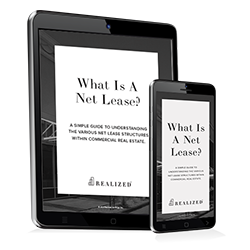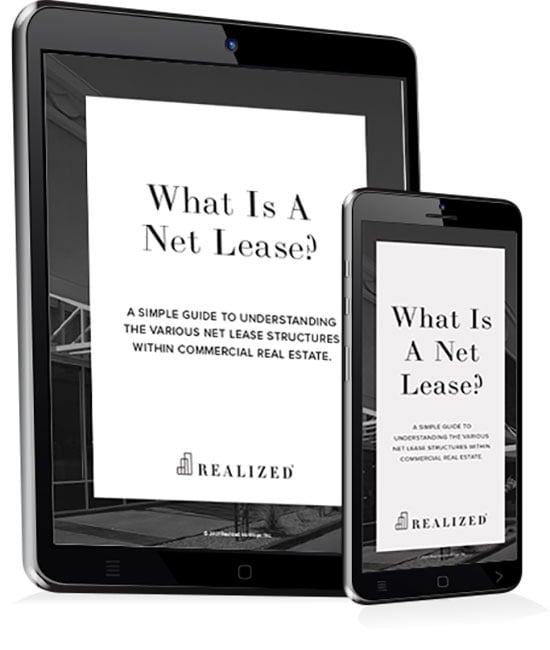
Triple net lease (NNN) investments transfer three net operating expenses to the tenant: property taxes, insurance coverage, and maintenance costs. This structure alone provides tax benefits to the landlord since they’re no longer responsible for paying property taxes, but this isn’t the only tax advantage. There are plenty of other tax benefits of investing in triple net lease properties.
Below, Realized 1031 shares details about these other opportunities so you know how to take advantage of them.
Depreciation Deductions
Depreciation is one of the most powerful strategies you can employ to reduce tax burden on your real estate asset. While your property appreciates in value, you can deduct a percentage annually to account for wear and tear. Keep in mind, though, that this tax concept is tied to ownership. You will be applying the depreciation on your tax return.
For commercial properties, the accounting depreciation schedule is 39 years. Let’s say that your property has an initial value of $3.9 million. Every year, you’re allowed to deduct $100,000, which provides a major relief on your total taxable income.
Interest and Financing Deductions
Acquiring triple net lease properties may require financing, which ultimately means mortgage interest payments. Thankfully, this type of interest is qualified as a tax deduction. Loan origination fees and related financing costs may also be deductible or amortized over time. These deductions help reduce your overall income tax liability, allowing you to maximize returns while keeping upfront capital requirements lower.
Expense Write-offs
Although NNN tenants cover most operating costs, landlords may still incur some expenses, such as legal fees, accounting costs, or property management oversight. These expenses are generally deductible, making them one of the NNN tax benefits.
1031 Exchange Benefits
The most straightforward way to acquire an NNN lease is a direct purchase. However, there are other strategies you can follow to enjoy additional tax benefits, such as the 1031 exchange. Also called the like-kind exchange, this transaction involves swapping two properties held for business or investment use. If you already have commercial real estate and want to enter a new sector or asset class, then 1031 exchanges are the ideal solution.
What’s the benefit of the 1031 exchange? Since there is no official sale during the swap, the IRS doesn’t recognize gains or losses. In other words, you defer capital gains taxes on the property you relinquished. This benefit allows you to preserve more of your capital and acquire higher-value NNN properties.
Direct ownership of the NNN property is usually the end result of the 1031 exchange. However, there are other variations for investors who want additional benefits. One of these is the Delaware Statutory Trust (DST), which is an entity that owns underlying assets that may include NNN properties. You can exchange the proceeds from your relinquished asset for DST interests and maintain your capital gains tax deferral. DSTs have additional benefits like truly passive income and enhanced diversification.
Whether you’re following the traditional 1013 exchange or finishing it through a DST, you’ll need to follow strict rules to maintain your tax-deferral benefits.
- 180-day time frame with a 45-day identification period
- Only like-kind properties can be exchanged
- Use of a qualified intermediary
- All proceeds must be reinvested. Any leftovers will be taxable boot.
Wrapping Up: Triple Net Lease Tax Benefits
Being free of property taxes is not the only tax benefit of NNN leases. There are others you can take advantage of, such as depreciation, interest payment deductions, and capital gains tax deferral through a 1031 exchange. Consulting with tax experts can help you understand these benefits and how they apply to your investment.
Sources:
https://www.investopedia.com/financial-edge/0110/10-things-to-know-about-1031-exchanges.aspx
https://www.investopedia.com/terms/t/tax-deductible-interest.asp
https://www.investopedia.com/articles/investing/060815/how-rental-property-depreciation-works.asp



